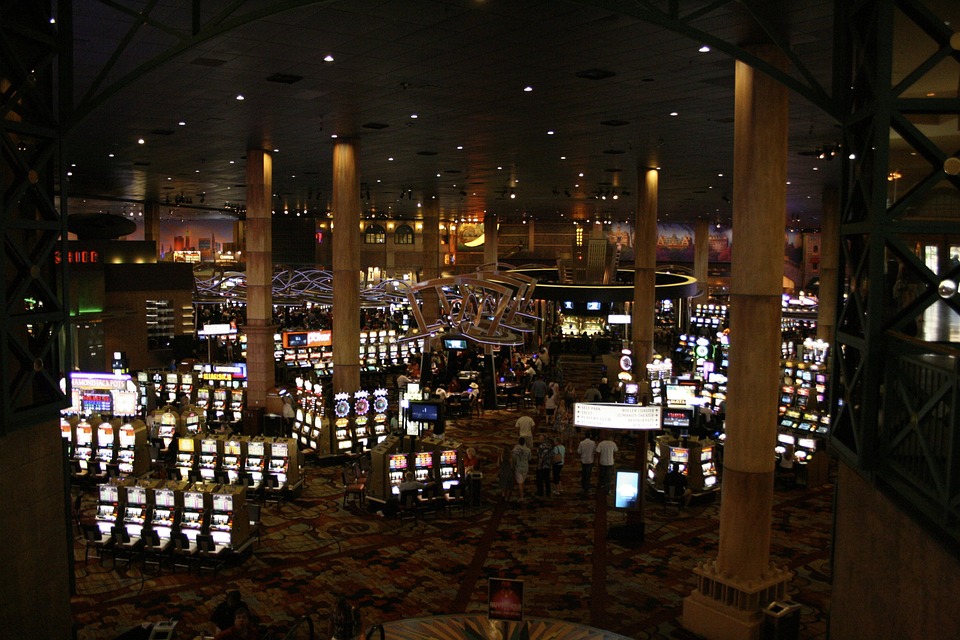The allure of casinos has captivated people for centuries, evolving from simple gaming establishments in ancient cultures to multi-billion dollar enterprises that span the globe. More recently, technological advancements have revolutionized the way we engage with gambling, transitioning from traditional brick-and-mortar experiences to vibrant virtual environments. This article traces the evolution of casinos while exploring the implications of this transformation for players, operators, and the gambling industry as a whole.
The Early Days of Gambling
Gambling has its roots deep in history, with evidence of dice and betting games found in ancient Egyptian, Chinese, and Roman civilizations. These early forms of gaming were often social, communal activities, providing entertainment and a chance for players to test their luck. Fast forward to the 17th century, and sophisticated gambling houses begun to emerge in Europe, with the establishment of formal regulations and rules.
The Rise of Brick-and-Mortar Casinos
The modern casino as we know it began to take shape in the 19th century, with the opening of the first official casino in Venice, Italy, in 1638. Gradually, the concept spread across Europe and into America, with significant influences from the Gold Rush of the 1840s and the establishment of Las Vegas as the world’s gambling capital in the mid-20th century. As casinos flourished, they developed into opulent destinations: luxurious hotels with extravagant dining, captivating entertainment, and stunning architectural designs. People flocked to these establishments not only for gambling but to experience an all-encompassing social environment.
The Advent of Online Gaming
The digital revolution of the late 20th century marked a turning point for the gambling industry. In 1994, Antigua and Barbuda passed legislation that allowed for the licensing of online gambling, paving the way for the establishment of the first online casinos. Though the initial offerings were limited and somewhat rudimentary, they quickly gained popularity as internet access expanded, and players embraced the opportunity to gamble from the comfort of their homes.
By the early 2000s, online casinos were abundant; they featured diverse gaming options such as slots, poker, blackjack, and even live dealer games. The convenience of online gaming attracted a new generation of players who appreciated the ease of access, the ability to play at any time, and often better odds and promotions compared to traditional casinos.
The Rise of Mobile Gaming
As technology continued its rapid evolution, the introduction of smartphones brought about another significant change in the casino landscape. Mobile gaming became a key player in the gambling arena, allowing users to engage in gaming experiences on-the-go. Casino operators quickly adapted, developing optimized applications that offered an array of games right at players’ fingertips.
The accessibility and convenience of mobile gaming have transformed the player demographic, enabling people who may never visit a physical casino to participate in gambling. This shift has also heightened competition among providers, leading to more innovative features, enhanced graphics, and immersive gaming experiences.
Virtual Reality and Augmented Reality: The Future of Casinos
Emerging technologies like Virtual Reality (VR) and Augmented Reality (AR) are set to redefine the casino landscape even further. VR casinos offer players an immersive experience where they can explore digital environments and interact with other players and dealers in real-time. Users can don VR headsets and step into a virtual casino, complete with a realistic ambiance and social interaction, making the experience more akin to that of traditional casinos.
AR technologies can enhance physical casinos, providing interactive experiences that blend the real world with digital elements. With these innovations, the divide between online and brick-and-mortar casinos may begin to blur, creating new opportunities for engagement, convenience, and community.
Regulatory Challenges and Responsible Gaming
As casinos evolve, so too do the challenges associated with them. The rise of online and mobile gaming has spurred concerns over regulation, security, and responsible gaming practices. Governments and regulatory bodies are tasked with ensuring that these platforms are safe, fair, and conducive to responsible gaming. Collaborations between operators, regulators, and organizations promoting responsible gambling are essential for protecting players.
Conclusion
The evolution of casinos from brick-and-mortar establishments to virtual experiences represents more than just a technological shift; it marks a transformation in how society perceives and engages with gambling. While traditional casinos continue to thrive, the growth of online gaming and innovative technologies points to a dynamic future, where players can choose their experiences and engage with casinos like never before. As the industry evolves, embracing change while prioritizing safety and responsible gaming will be vital for cultivating a vibrant gaming community for years to come.

